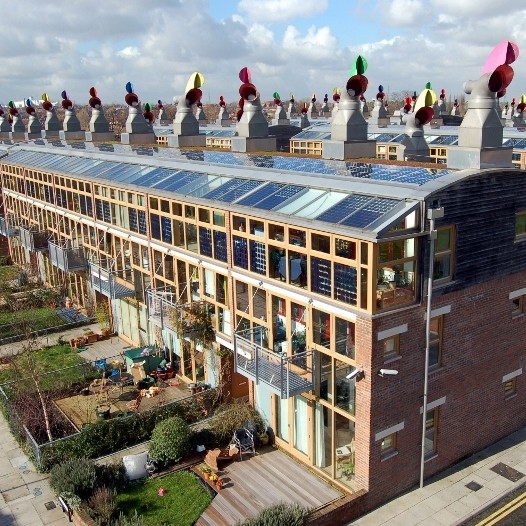A transformation in the way energy is used across the UK economy could help boost growth and jobs, and investing in energy efficiency could save up to 22 power stations-worth of energy by 2020, according to the newly published Government’s Energy Efficiency Strategy.
The new Strategy is aimed at changing the way energy is used in sectors such as housing, transport and manufacturing over the coming decades.
It also includes immediate action to kick start a revolution in UK energy efficiency, including:
- £39 million to fund five centres examining business and household energy demand. The five End Use Energy Demand Centres, funded by the Research Councils UK and project partners and led by leading universities, will look at what drives energy demand and how to change future behaviour.
- An energy efficiency labelling trial with John Lewis. DECC and John Lewis will introduce a product-labelling trial next year that shows the lifetime running costs of household appliances. A similar trial in Norway showed this information led to consumers purchasing goods that are more energy efficient.
- A drive on financing energy efficiency for business and the public sector. As well as a guide to help public sector organisations cut their energy use, the Government will fund a nationwide rollout of RE:FIT, the Mayor of London’s award winning programme to improve public sector energy efficiency. Government is also working with ENWORKS in the North West to understand how best to finance and upgrade to more energy efficient equipment in commercial and manufacturing businesses.
Energy and Climate Change Minister Greg Barker said: “We have put energy efficiency at the very heart of the Government’s energy policy. Using energy more wisely is absolutely vital in a world of increased pressure on resources and rising prices. Not only can energy efficiency help save money on bills and cut emissions, it can support green jobs, innovation and enterprise.
“This is Britain’s first comprehensive Energy Efficiency Strategy and sets out the action we are taking now, as well as what we will do in the future to ensure the UK continues to be a global leader in reducing energy use.”
The energy efficiency sector in the UK already accounts for around 136,000 jobs, and had sales of £17.6 billion in 2010/11. Sales in this sector have grown by over 4% per year in the UK since 2007/08, and are projected to grow by around 5% per year between 2010/11 and 2014/15.
The Energy Efficiency Strategy, which draws on a Call for Evidence published by DECC in February this year, sets out the Government’s mission to seize the energy efficiency opportunity, boosting growth in the economy, creating jobs, helping households and businesses save money and working towards our climate change goals. The UK could be saving 196TWh in 2020, equivalent to 22 power stations, through cost-effective investment in energy efficiency.
The strategy highlights energy efficiency potential, the benefits of achieving it and reflects on barriers to uptake. It includes new householder behaviour reports which examine the key factors influencing energy use in the UK’s homes and businesses. There are significant community benefits around energy efficiency and community based interventions have been shown to save households up to 10% of their energy.
UK commercial and industrial sectors have made good progress in improving their energy efficiency and in many cases lead the world. But there is still huge potential and this strategy signals renewed efforts to help all businesses improve their efficiency and cut their costs.
Three Technology Innovation Needs Assessments (TINAs) have also been published as part of the strategy, looking into energy efficiency innovation required at a household, commercial and industrial scale.
In addition, DECC will continue publishing a series of consultations to guide the implementation of the EU Energy Efficiency Directive, which needs to be fully implemented by Spring 2014. The Directive is a significant step forward by the EU as it looks to meet its target to reduce primary energy consumption by 20 per cent by 2020 against its 2007 business as usual projections.




















